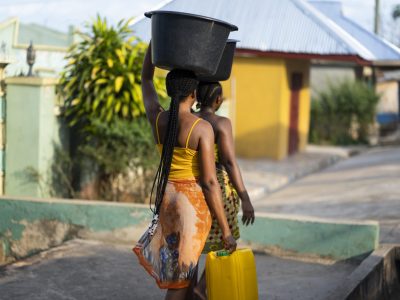Through provision of improved water, sanitation and hygiene (WASH) facilities and services, and increased knowledge and capacities SUDI projects will reduce the vulnerability of those households, who do not have access to safe drinking water and proper hygiene and sanitation facilities in its areas of operation. SUDI WASH interventions is designed to improve the quality and access to safe water at the community level and improvement to institutional WASH facilities, such as schools, supported by increasing the knowledge and practices of communities to use and maintain.
SUDI adopts the Community Led Total Sanitation (CLTS) methodology to promote behaviour change on current hygiene and sanitation practices in targeted communities. CLTS involves facilitating a process to inspire and empower rural communities to stop open defecation and to build and use latrines, without external subsidies to purchase hardware.
Through the use of Participatory Rural Appraisal (PRA) methods, community members analyse their own sanitation profile including the extent of open defecation and the spread of faecal oral contamination that detrimentally affects them. SUDI will then procure material and equipment’s to support the micro construction projects based on the decision of the communities.
To improve institutional WASH facilities (e.g. water points, hand washing facilities, latrines, etc). In order to bring behavioural changes and improve the situation of hygiene and sanitation, SUDI will establish WASH Facilitators from school management team and WASH club from school children in each targeted school in all areas of its operation. Further the organization will establish and strengthen community based WASH Committees.

